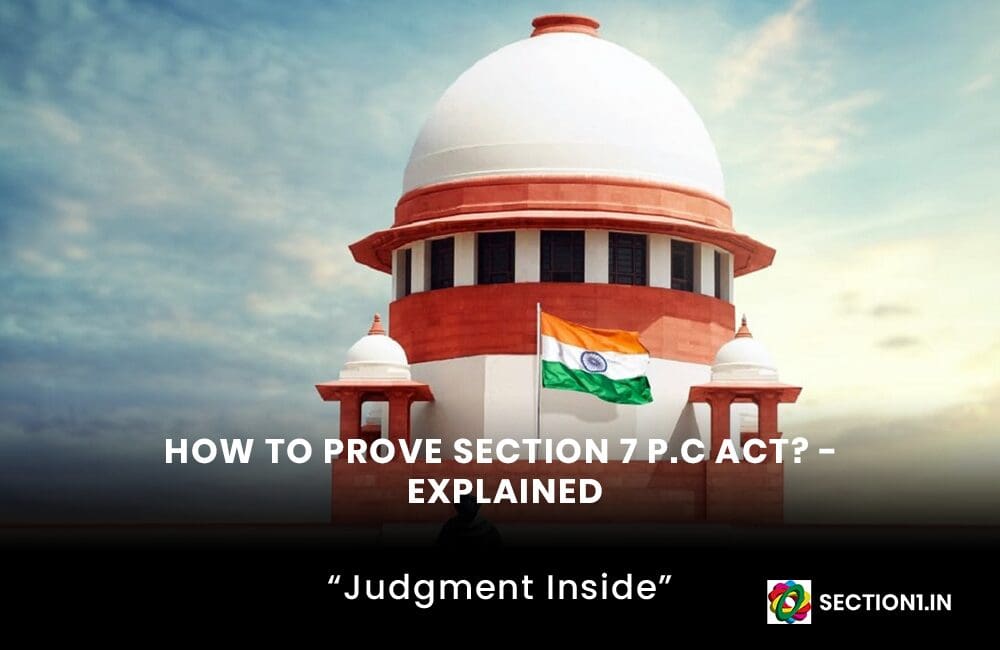HOW TO PROVE OFFENCE u/s 7 P.C ACT? The offence under Section 7 of the PC Act relating to public servants taking bribe requires a demand of illegal gratification and the acceptance thereof. The proof of demand of bribe by a public servant and its acceptance by him is sine quo non for establishing the offence under Section 7 of the PC Act. In the case of P. Satyanarayana Murthy v. District Inspector of Police, State of Andhra Pradesh and another [(2015) 10 SCC 152], this Court has summarised the well-settled law on the subject in paragraph 23 which reads thus: (2015) 10 SCC 152:
“23. The proof of demand of illegal gratification, thus, is the gravamen of the offence under Sections 7 and 13(1)(d)(i) and (ii) of the Act and in absence thereof, unmistakably the charge therefor, would fail. Mere acceptance of any amount allegedly by way of illegal gratification or recovery thereof, dehors the proof of demand, ipso facto, would thus not be sufficient to bring home the charge under these two sections of the Act. As a corollary, failure of the prosecution to prove the demand for illegal gratification would be fatal and mere recovery of the amount from the person accused of the offence under Section 7 or 13 of the Act would not entail his conviction thereunder.” (Emphasis added)
DEMAND NOT PROVED: 12. Thus, the version of PW1 in his examination-in-chief about the demand made by the appellant from time to time is an improvement. As stated earlier, LW8 did not enter the appellant’s chamber at the time of trap. There is no other evidence of the alleged demand. Thus, the evidence of PW1 about the demand for bribe by the appellant is not at all reliable. Hence, we conclude that the demand made by the appellant has not been conclusively proved.
PARTY: K. Shanthamma vs. The State of Telangana – Criminal Appeal No. 261 of 2022 (Arising out of SLP (Criminal) No. 7182 of 2019) – 21.02.2022.



